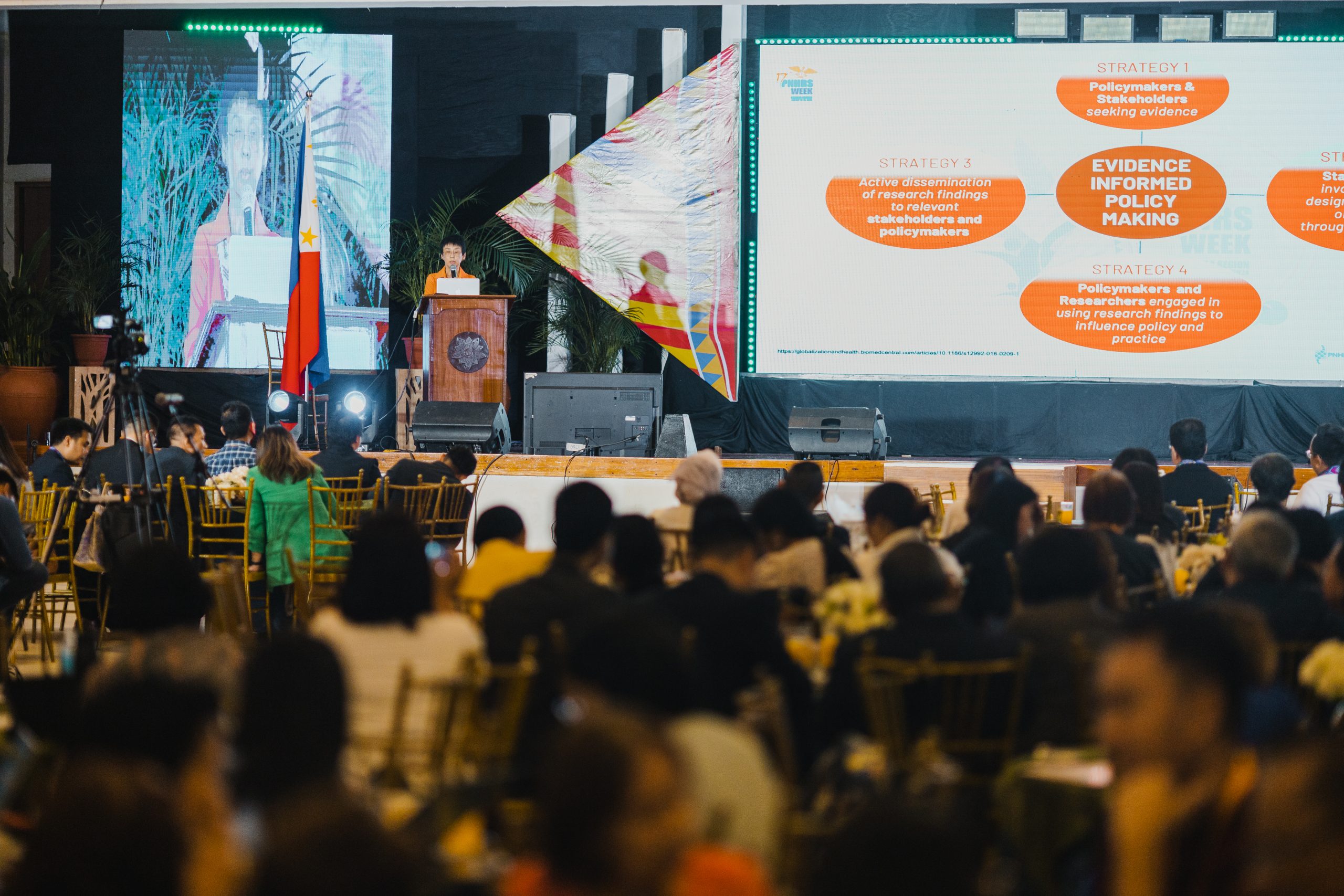NEWS AND UPDATES
Integrating Policy and Technology for Stronger Health System and Universal Health Care

The discussions during the fourth plenary session of the 17th Philippine National Health Research System (PNHRS) Week entitled, “Expanding the Frontiers of Health Research for Universal Health Care,” revolved around advancing health systems through policy research, technology, and strategic partnerships. The session emphasized the role of research in developing a more inclusive Universal Health Care (UHC) framework.
The session brought forward a range of perspectives on achieving UHC through various innovative strategies. Dr. Josephine Robredo Bundoc, President and Chair of Physicians for Peace Philippines Inc., addressed integrating policy research into assistive technology and rehabilitation. She emphasized the need for financial accessibility, stating, “Persons with disabilities should have access to quality health services, rehabilitation, and assistive technology without financial strain.” Dr. Bundoc advocated for a patient-centered approach to rehabilitation that includes a multi-disciplinary team to enhance functionality and social inclusion. She also discussed barriers to effective policy-making, such as topographical issues, high costs, and limited data. Dr. Bundoc called for a research-driven approach where policymakers, stakeholders, and researchers work together throughout the research process to address issues and expand access to assistive technologies.
Following Dr. Bundoc’s insights on enhancing access to assistive technologies, Engr. Iris Joy M. Cañete-Galaura, representing Butuan City Mayor Ronnie Vicente Lagnada, presented the city’s efforts to build a strong health system. She highlighted initiatives like upgrading the Butuan Medical Center to a Level 3 hospital and creating specialized health centers. Engr. Cañete-Galaura remarked, “We are committed to ensuring the overall well-being of every Butuanon,” reflecting the city’s efforts to align with the Universal Health Care Act to enhance health care delivery. Additionally, she noted advancements in data analytics and information systems aimed at strengthening the city’s health infrastructure and addressing gaps in service delivery in the Caraga region.
Transitioning from local health system developments, Department of Science and Technology (DOST) – Assistant Secretary for Development Cooperation, Rodolfo J. Calzado Jr., discussed strategies for strengthening development partnerships. He emphasized the need for better alignment with the DOST Strategic Plan 2023-2028 and increasing the Department’s presence among official development assistance (ODA) and industry partners. “We can better position DOST as a leader in S&T-based development nationwide by increasing DOST’s presence among ODA and industry partners and promoting technology transfer and commercialization,” stressed Asec. Calzado. He also highlighted the importance of diversifying funding sources and building institutional capacities within DOST and its agencies, advocating for a unified approach to advancing science and technology.
The fourth plenary session underscored that progress in UHC is linked to effective health research, strategic partnerships, and technological advancements. Addressing the discussed concerns and improvements is key to developing a healthcare system that is inclusive, resilient, and accessible to all Filipinos.
Written by: Ranz Elifred Valdez




